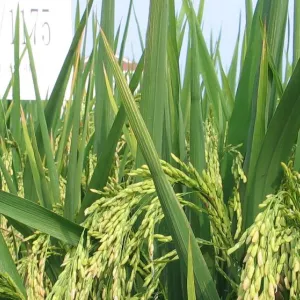Hybrid rice + innovations: a path forward for climate-smart agriculture
LOS BAÑOS, Philippines (06 January 2025) ~ Rice, while a staple food for half of the world’s population, is also a significant contributor to greenhouse gas (GHG) emissions, primarily methane and nitrous oxide. With rice cultivation accounting for nearly 48% of all GHG emissions from croplands, solutions are urgently needed to address this global environmental challenge. A comprehensive study highlights

Hybrid rice + innovations: a path forward for climate-smart agriculture
LOS BAÑOS, Philippines (06 January 2025) ~ Rice, while a staple food for half of the world’s population, is also a significant contributor to greenhouse gas (GHG) emissions, primarily methane and nitrous oxide. With rice cultivation accounting for nearly 48% of all GHG emissions from croplands, solutions are urgently needed to address this global environmental challenge. A comprehensive study highlights hybrid rice enhanced by breeding and agronomic innovations as a promising avenue to reduce emissions while ensuring food security.
Recently published in Plant Communications, “ Advanced technologies for reducing greenhouse gas emissions from rice fields: Is hybrid rice the game changer? ” was authored by scientists from the International Rice Research Institute (IRRI), the United States Department of Agriculture (USDA), and the University of the Philippines Los Baños (UPLB). The study puts forward key research on how hybrid rice offers a dual benefit of higher productivity and reduced emissions, and how pairing hybrid rice cultivation with innovations like machine learning, gene editing, and high-throughput phenotyping, as well as agronomic practices like alternate wetting and drying (AWD), soil organic matter management, and nutrient management, can play a pivotal role in meeting global food needs while tackling the climate crisis.
A sustainable pathway
Hybrid rice varieties are emerging as a transformative approach to reducing GHG emissions. These high-yielding hybrids have shorter growth durations, which minimize the time fields remain flooded, significantly reducing methane emissions. Research shows that hybrid rice can emit 19% less methane compared to traditional inbred varieties under similar conditions. Additionally, hybrids often exhibit enhanced nitrogen-use efficiency, reducing nitrogen emissions associated with excessive fertilizer application.
Innovative technologies such as machine learning, gene editing, and high-throughput phenotyping can significantly accelerate the development of climate-resilient rice varieties. Machine learning can analyze complex data sets to…

